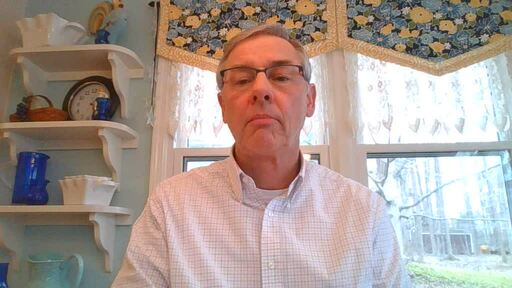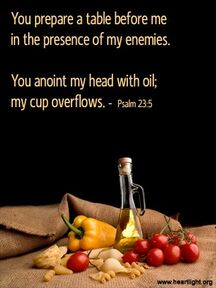Psalm 23:5
Some students believe there is a change of metaphor here, from the shepherd and his sheep to the host and his guest, but this is not necessarily the case. “Table” doesn’t necessarily refer to a piece of furniture used by humans, for the word simply means “something spread out.” Flat places in the hilly country were called “tables” and sometimes the shepherd stopped the flock at these “tables” and allowed them to eat and rest as they headed for the fold (see 78:19). After each difficult day’s work, the aim of the shepherd was to bring the flock safely back to the fold where the weary sheep could safely rest for the night. Sometimes at the fold, the shepherd would spread out food in a trough, because sheep lie down and rest after they have eaten. As they slept, they would be protected by a stone wall that surrounded them, and the shepherd himself would sleep across the opening and be the door (John 10:7–9). During the night, thieves and dangerous animals might approach the fold, but there was no way they could reach the sheep. The Lord doesn’t always remove the dangers from our lives, but He does help us to overcome them and not be paralyzed by fear. This is what it means to be “more than conquerors” and have peace in the midst of danger (Rom. 8:31–39).
The shepherd would examine the sheep as they entered the fold to be sure none of them was bruised, injured, or sick from eating a poisonous plant. To the hurts, he applied the soothing oil, and for the thirsty, he had his large two-handled cup filled with water. He would also apply the oil to the heads and horns of the sheep to help keep the flies and other insects away. The sheep knew they were safe and they could sleep without fear.









